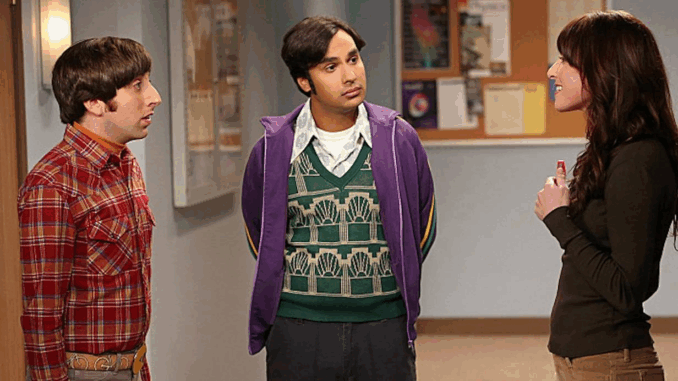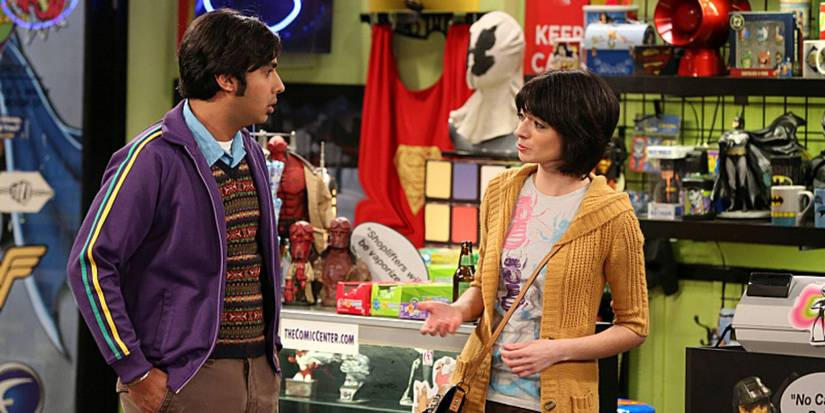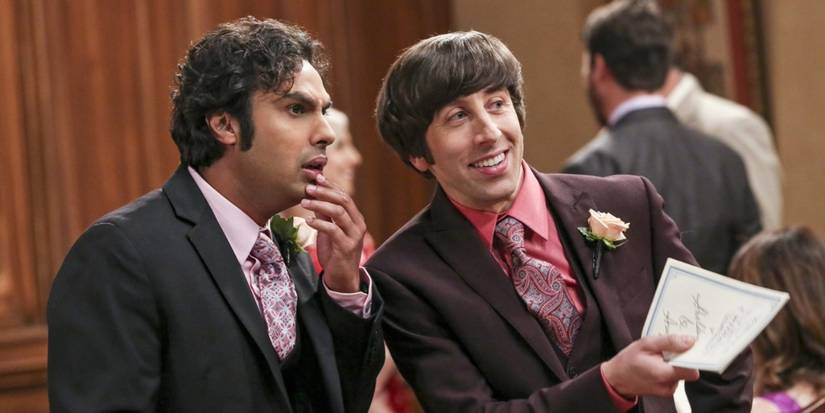
As wildly successful as The Big Bang Theory was, the sitcom faced ongoing criticism from the very community it aimed to celebrate — self-proclaimed geeks and nerds. Over its 12-season run, the show became a pop-culture phenomenon, inspiring millions to take an interest in science and spawning multiple spinoffs.
It also brought comic books, fandoms, and sci-fi franchises into the mainstream, helping redefine “nerd culture” for a global audience. Yet not everyone saw this as a good thing. Many longtime fans of geek culture felt misrepresented by the series, arguing that The Big Bang Theory exaggerated stereotypes and mocked rather than celebrated their passions — a frustration that peaked in one especially controversial episode from Season 6.
🎯 The Big Bang Theory’s Season 6 Episode “The Tangible Affection Proof” Exposed the Show’s Lazy Nerd Stereotypes
Season 6, episode 16 of The Big Bang Theory, “The Tangible Affection Proof,” was meant to be a lighthearted Valentine’s Day story — but it ended up highlighting one of the show’s biggest flaws.

While the rest of the gang enjoyed romantic plans, Raj (Kunal Nayyar) hosted a Valentine’s Day party for single friends at Stuart’s (Kevin Sussman) comic book store. What could have been a sweet celebration of friendship and self-acceptance quickly turned into a depressing gathering of “lonely geeks.”
Instead of embracing the idea that fans of comics and sci-fi can live happy, fulfilling lives with or without romance, the episode leaned into tired clichés. One attendee even sighed, “Usually I spend Valentine’s Day sad and alone. This year, I’m just sad.”
Raj’s heartfelt speech about self-worth and community briefly promised something deeper: “We’re not mutants — the only mutants here are in the comic books.” But the message fell flat the moment Raj abandoned his friends the instant Lucy (Kate Micucci) showed interest in him, calling them losers on his way out.
The scene perfectly summed up The Big Bang Theory’s recurring problem — its tendency to mock, rather than celebrate, the geek culture it claimed to represent. Reducing intelligent, passionate characters to awkward, love-starved stereotypes may have earned laughs in the short term, but 18 years later, it’s easy to see why many fans found the joke at their expense.
🎬 The Big Bang Theory’s Nerdy Characters Started Out One-Dimensional
When The Big Bang Theory first premiered, its characters were little more than walking stereotypes. Most conversations revolved around science, fandoms, or women — and that lack of depth alienated many real-life geeks.

Even Penny (Kaley Cuoco), the show’s only non-genius lead, was written as a cliché — the pretty girl next door who used her charm to get by. Meanwhile, the male leads fell into familiar “nerd tropes”: awkward, socially inept, and desperate for affection. For many viewers who identified with geek culture, it felt more like mockery than representation.
It took several seasons for the writers to humanize the group. Sheldon (Jim Parsons) slowly revealed a softer side, Howard (Simon Helberg) exposed the insecurities behind his arrogance, Penny proved her intelligence and ambition, Leonard (Johnny Galecki) showed quiet determination, and Raj (Kunal Nayyar) became more than his shyness.
Those who stayed with the series saw it evolve from surface-level stereotypes into a genuinely heartfelt sitcom about friendship, growth, and acceptance. Unfortunately, for viewers who dropped out early, The Big Bang Theory never outgrew its one-dimensional beginnings — and that first impression still shapes its reputation today.
